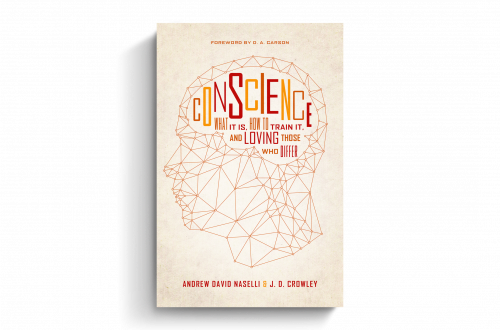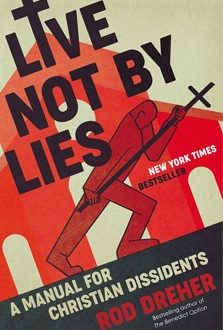 If you haven’t gotten a copy of Jim Hamilton’s new commentary on Revelation, now is the time to do so. This book is an excellent exposition of the text, and I commend it to you. I am grateful that Hamilton took some time to answer some of my questions about the book of revelation and his interpretation of it. My questions and Hamilton’s responses are below.
If you haven’t gotten a copy of Jim Hamilton’s new commentary on Revelation, now is the time to do so. This book is an excellent exposition of the text, and I commend it to you. I am grateful that Hamilton took some time to answer some of my questions about the book of revelation and his interpretation of it. My questions and Hamilton’s responses are below.
————————–
What is the main point of Revelation? What is the genre?
I think the main point of Revelation is that God will be glorified in salvation through judgment.
The churches that John addressed were small and seemingly insignificant. The Roman culture in which they lived confronted them with temptation to idolatry and sexual immorality. This book pulls back the veil and shows them the way things really are: those who participate in the Roman Imperial Cult face God’s judgment, through which he will save those who are spiritually pure, the bride of Christ, Christians who are symbolically referred to as virgins, when the King comes riding in on that white horse.
Genre: Revelation is an apocalyptic prophecy in the form of a circular letter. The book of Revelation is a merging of three genres–apocalyptic, prophecy, and epistolary literature. The first words of the book identify it as an Apocalypse: “The revelation of Jesus Christ” (Rev 1:1).
Then John calls his book a prophecy: “Blessed is the one who reads aloud the words of this prophecy” (1:3).
And then in Revelation 1:4 he starts into the formula used in other New Testament letters: “John to the seven churches . . .” and we also find what looks like a letter closing in 22:21, “The grace of the Lord Jesus be with all. Amen.”
If much of the prophecy in Revelation symbolizes early Christian conflict with Rome, then why not take a Preterist reading of the book?
It seems to me that a preterist reading of the book would demand that the book had to have been written prior to the destruction of the temple in AD 70. Early church tradition dates the writing of the book around AD 95. Ultimately we don’t know for sure when it was written, but for the preterist view to work it had to come before AD 70. That branch is too weak to hold the weight of the theory.
Did John write Revelation, or did some other John write it? Is that relevant to our interpretation of the book?
I think John the son of Zebedee wrote Revelation, and I think he also wrote the Gospel of John and the Letters of John. The explanation that Carson and Moo give of some early testimony about there being two Johns is convincing to me: they suggest that some were trying to discredit the chiliasts (premillennialists) by suggesting that some other John (not the son of Zebedee) wrote Revelation (see Carson and Moo, Introduction to the New Testament, 701–707, 233–35).
It’s relevant to our interpretation in that it allows us to interpret all the books that John wrote in light of each other. Among other things, this gives us some confidence that the ungrammatical Greek style in Revelation does not result from incompetence–John used good Greek in his gospel. I think the style of Revelation is meant to evoke the Greek translation of the OT, particularly the OT prophets, and there may be connections to the way Ezekiel, in particular, has stretched the Hebrew language.
Is rapture doctrine taught in Revelation?
I assume you mean “pre-trib” rapture doctrine, and no, I don’t see the pre-trib rapture in the book of Revelation. When I was a student at DTS, I asked Darrell Bock for the best argument for the pre-trib rapture. He said he thought the best argument was Daniel’s 70th week. I nodded like I understood, but I had no idea what he meant!
I think I understand him now. Lots of evangelicals hold that the first 69 weeks are literal sets of 7 years (69 weeks of years) that lead up to the death of Christ. If you take that view, then consistency requires that the 70th week also be a literal 7 year period. The pre-trib dispensationalists are consistent in seeing Daniel’s 70th week as the final 7 years before the return of Christ. They think this last week comes after the rapture of the church.
I think that the various references to 3 1/2 years in Revelation (1260 days, 42 months, times/time/and half a time) are interpreting Daniel’s 70th week, but I don’t think John is treating it as the final 7 years after the rapture of the church before the return of Christ. Rather, I am convinced that John is presenting those 3 1/2 year periods as symbolic ways of presenting the whole of church history between the two comings of Christ. So I don’t think John is teaching the pre-trib rapture in Revelation.
What about the interpretation of Revelation 4:1 that says “come up here” is a reference to the rapture?
I think the most natural reading is that John himself is being invited into the heavenly throne room.
Does revelation teach that there will be a literal 1,000 year reign of Christ on earth?
I think so, and here are some reasons:
1) The beast and the false prophet are thrown into the lake of fire before the 1,000 years (Rev 19:20), and then Satan joins them there after the 1,000 years (Rev 20:10).
2) Satan is deceiving the nations (Rev 13:14) when the Christians who are resurrected in Revelation 20:4 are dying (Rev 11:7; 12:11; 13:7), which means that his binding for 1,000 years in Revelation 20:1–3 stops him from doing something he does throughout church history (Rev 11–13).
3) Revelation 20:4–6 presents a resurrection of dead believers prior to the 1,000 years, then another resurrection of the rest of the dead after the 1,000 years.
4) The coming to life of those who were “beheaded for the testimony of Jesus” in Revelation 20:4 can’t be a reference to regeneration, spiritually coming to life, because these are people who are killed “for the testimony of Jesus,” so they’re already spiritually alive when they get killed.
5) The coming to life of these people also can’t refer to their coming to life in the presence of God in heaven, because they have already been depicted as alive with God in heaven in Revelation 15:1–2.
6) Revelation 20 cannot be a recapitulation of Revelation 12 because the details of the two passages are too different–in Rev 20 Satan is alone, in Rev 12 he’s with all his angels; in Rev 20 he’s thrown into a pit, in Rev 12 he’s thrown down to earth; in Rev 20 he’s bound, in Rev 12 he has the free roam of the earth; in Rev 20 he’s locked up for 1,000 years, in Rev 12 he knows his time is short; in Rev 20 he can no longer deceive the nations, in Rev 12–13 he is deceiving the nations (see 13:14). Revelation 12 and Revelation 20 are not talking about the same thing.
7) The biggest problem for the premillennial view is easier to deal with than the biggest problem for the amillennial view. The premil problem is this: who are the rebels that join Satan in Rev 20:7–10? This problem arises from us needing the text to give us more information than it does. We need the text to specify that not every last person was killed at the return of Christ but that some unbelievers entered the millennium, had unbelieving children, and these unbelievers comprise the ranks of unresurrected unregenerates who join Satan’s cause. This problem is not as bad as the biggest problem for the amillennial view. The amil problem isn’t needing the text to say more but with what the text already says! There are OT texts that indicate that some unbelievers survive the return of Christ (cf. Zech 14). So I think the premil view is plausible, whereas the amil view requires that we twist and turn and contort ourselves in the attempt to deal with what the text does say.
What’s your millennial position, and how does Revelation inform your view?
I’m historic pre-mil, and I think it’s the most natural reading of the text.
What do you say to pastors who do not preach Revelation because it is either too difficult or too divisive?
You could say that lots of passages in the Bible are too difficult and too divisive–and for bigger reasons than you can cite about Revelation! Are you going to avoid all of those, too?
If we believe that all Scripture is God breathed and profitable (2 Tim 3:16), if we believe that God really will bless those who read, hear, and keep what’s written in Revelation (Rev 1:3), and if we want to follow Paul in proclaiming the whole counsel of God, we should trust God and preach the book of Revelation.
Did you split your church when you preached it?
Thankfully, no. If that were to happen, I would maintain that the problem was with the preacher or the church or some combination of both. That is to say, the church split wouldn’t be the book of Revelation’s fault!




14 Comments
Brent Hobbs
Good interview. I was particularly interested because I have been considering preaching Revelation within the next year or so. I’d be interested to hear Dr. Hamilton evaluate his commentary next to Beale, Mounce, Ladd, etc… to see what he thinks are some of the strengths of the others and what his work adds to the discussion.
Jim Hamilton
Thanks for this, Brent, I tweeted some thoughts on other books today. Basically this:
I think the best book on Revelation is Bauckham’s THEOLOGY OF THE BOOK OF REVELATION.
The clearest and most concise, while being full, commentary is Osborne’s in the BECNT.
Beale’s is the most detailed one you’ll need.
As I preach I like to find a commentary or two that will give me all the detail I would need and more, and I mainly consult this when I run up against something I don’t understand. Then I like to find a briefer, perhaps more devotional one to help me with ideas on how to apply the text or to perhaps provoke ideas for illustrations, introductions, etc.
So if I may, I recommend mine and Osborne’s, or mine and Beale’s, or all of the ones I’ve mentioned here.
Hope this helps!
Jim
Matt Svoboda
As of now, Osborne’s commentary is the best one I have read. I was also able to sit under him in his Revelation class, which was great.
Im looking forward to getting Dr. Hamiltons as well!
Dennis Johnsons is the best brief one I have gone through.
Brent Hobbs
Great! Thanks for the suggestions to Dr. Hamilton and Matt.
Pingback:
L. Rios
What are the differences between “historic pre-mil” and “dispensational pre-mil”?
Looking forward to receiving my copy of Dr. Hamilton’s book on Revelation.
Blessings!!
JohnnyM
the difference is how the Church and Israel are viewed. In dispensational, the Church and Israel are two distinct entities, but not viewed that way in historic.
Evan May
Helpful interview, thanks!
Matt Svoboda
I will certainly be getting this!
danny
So… why does he believe in a literal 1000 years? He didn’t actually answer the question. He answered why he’s a premill, but a number of premills don’t take the “1000” literally.
jonathan bennett
Dr. Hamilton,
Hello. I graduated from SBTS in ’09 and to this day, I wish I could have taken one of your classes. Everything I have read from you has been provoked a greater affection for Christ in me.
I myself take a preteristic (partial) perspective on Revelation. I understand your problem with preterism and AD 70. But have you read ‘Before Jerusalem Fell’ by Ken Gentry? He wrote his entire dissertation on this issue and shows that the INTERNAL evidence for an early date is convincing enough. He also gets into the EXTERNAL evidence, and shows that much of it for a late date is not as convincing as we once thought. I’ve not read it myself, but I hear it’s quite good. I’d love to hear your thoughts if you have read it (or something like it).
Tracy Irvin
I just preached through Revelation last year. I wish this one had been out. Can’t wait to get it.
Thanks for your ministry, writings, and teaching.
Pingback:
Pingback: